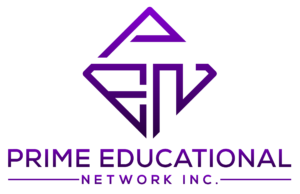Before we answer the question of Google Translate or a dictionary, let’s see what each is and how they can help people with different needs.
On the one hand, there is Google translate which is getting more and more popular. This popularity is due to its ease of use and availability on smartphones and computers. Also, let’s not forget how hard the Google Translate team is working to make translations more accurate. With the advancement of their neural machine translation, Google team tries to find the best and most commonly used phrases and sentences for the searched entry. However, the high success rate of Google’s results is probably with high-resource languages. But what does it mean?
Is Google Translate accurate?
If your search is between English and a language whose resources are limited on the internet, you probably can’t get very reliable answers. This is true for both words and sentences. For example, if you are a tourist traveling in Mexico, and the locals do not speak English, your best bet is to use your smartphone to translate your English word into Spanish. If the target language is Spanish, there is a good chance you get an accurate result and the locals understand what you want.
However, if you are, let’s say, in Brunei, and you are asking Google to translate something into Brunei Malay language, it’s highly likely that you will get inaccurate results. The reason is that the resources of this language are not widely available on the internet. Therefore, depending on the target language, you may get around 60-80% accuracy for some very commonly used languages. If that language is not that common, this accuracy can easily fall below 50%. So, finally, which is better? Google Translate or a dictionary? let’s learn a bit more before the final answer.
Who is Google Translate for?
The accuracy aside, even if you get pretty accurate results for your searched entry, Google just provides you with an answer with no extra information regarding that word or phrase. So, this invaluable service makes it more suitable for people who need an instant answer in a situation and not for those who intend to learn a language. Yes, it is not all about accuracy. Therefore, we can safely conclude that Google translate or other similar services are better for people like tourists or those who need a quick answer in a situation like at work or school; but even these people should consider possible mistakes or irrelevant answers that might be erroneous.
What about dictionaries?
On the other hand, we have dictionaries, and, as a matter of fact, we have different kinds of dictionaries. There is one kind of dictionary that is called “learner’s dictionaries” which is one of the best resources to offer the definitions of words, phrases, and expressions. These learner’s dictionaries are specifically written for learners of that language. For example, Oxford Learner’s Dictionary is one of the most widely used dictionaries in the world. The benefit of such dictionaries is that they know the possible mistakes a learner may make with a word. These dictionaries provide details and explanations to prevent such mistakes. The pronunciations in a dictionary like “Oxford Learner’s” are based on a Standard English language like British or American English, so you know you are learning a standard pronunciation of that word.
Moreover, if there are common phrases or expressions with that word, the dictionary provides them, so you can learn the other related expressions. Last but not least, such dictionaries provide examples with the searched word. With such examples, you can learn where and how you can use it. Apart from all these benefits, these dictionaries provide tons of grammatical information about that word in case you want to learn that language more fundamentally.
So Google Translate or a dictionary?
There are many more differences between Google Translate and dictionaries. However, in a nutshell, if you are in a situation like at work or in another country and need help with translation, Google translate is helpful despite its possible errors. If you are a language learner, and a learner’s dictionary is available for that language, you should always use a dictionary. Reliable dictionaries like Oxford, Cambridge, or Macmillan dictionaries never make mistakes.
If you like to become an independent English learner without the need for teachers or classes, we have some short introductory courses that can help you get started. After that, you can continue your English learning journey on your own. Contact us and we will guide you through.




this was a great article very helpful
This article really taught me about how google translate really works, I’ll stay clear of it from now on!
That was an amazing article and I did’nt know that google translate is not a dictionary! I’ll come back to read more article on this website
I’ve seen very few people these days using the dictionary, so we have to hope good translate gets more accurate
True, because most people try to find a quick answer to their questions, and their intention is not to learn English on a daily basis.
Why do I like reading the comments here as much as the article itself?
I arrived here as a result of following a link in an email I received from PEN. Everyone should subscribe to get much more content.
Impatiently waiting for PEN to post more articles 😉
Thanks, we are glad you are here. Hope you enjoy our content.